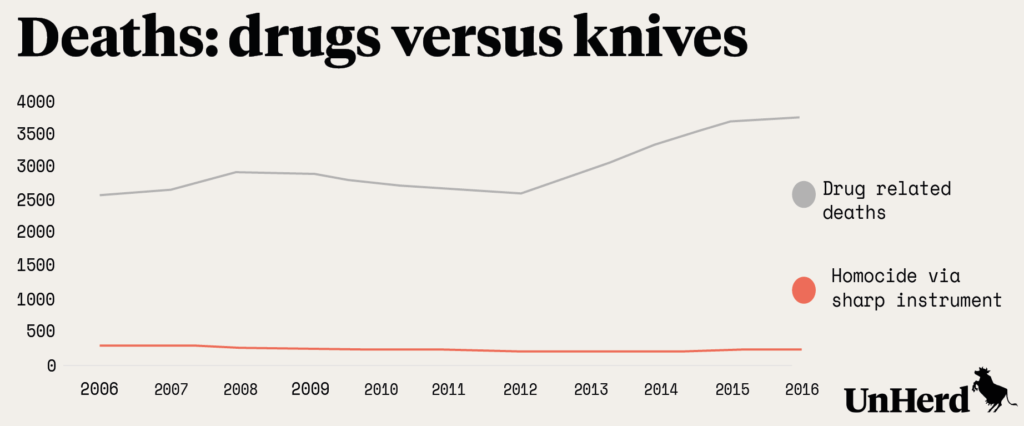Credit: Christopher Furlong/Getty Images
So far this year, 62 people have been killed in London following a surge in knife crime. This is not a one-off spike, but an epidemic fueled by gangs and domestic violence.
Politicians have lined up to denounce the violence and come up with ways of tackling it – the Home Secretary set up a Serious Violence Taskforce, while the Mayor of London gave the police greater stop and search powers.
Regardless of whether these measures are enough, their introduction shows that people care enough to intervene. Which makes it all the more disturbing that something which is killing 17-times more people is being all but ignored – the drug epidemic. The UK has become the drug death capital of Europe.

Every day, 10 people are dying a drug-related death, a 44% increase in just four years. Drug deaths are now the highest level since records began. A third of European drug overdoses happen in the UK. Why aren’t we more shocked?
While the drug epidemic has claimed more than 30,000 lives in a decade, deaths are only half the story. Drug addiction devastates families. Stephen, a recovering addict from one of the CSJ’s addiction charities, told me:
“It had a huge effect on my family, the emotional and psychological effect on them was constant, they were always worrying they were going to get a phone call saying that I was dead.”
Fortunately, Stephen’s family never got that call.
And the impact extends beyond an addict’s immediate family. Heroin and crack cocaine users commit 45% of all acquisitive crime, and addiction is one of the driving forces behind the knife crime gripping the UK’s major cities – not that you’d know from the media coverage.







Join the discussion
Join like minded readers that support our journalism by becoming a paid subscriber
To join the discussion in the comments, become a paid subscriber.
Join like minded readers that support our journalism, read unlimited articles and enjoy other subscriber-only benefits.
Subscribe